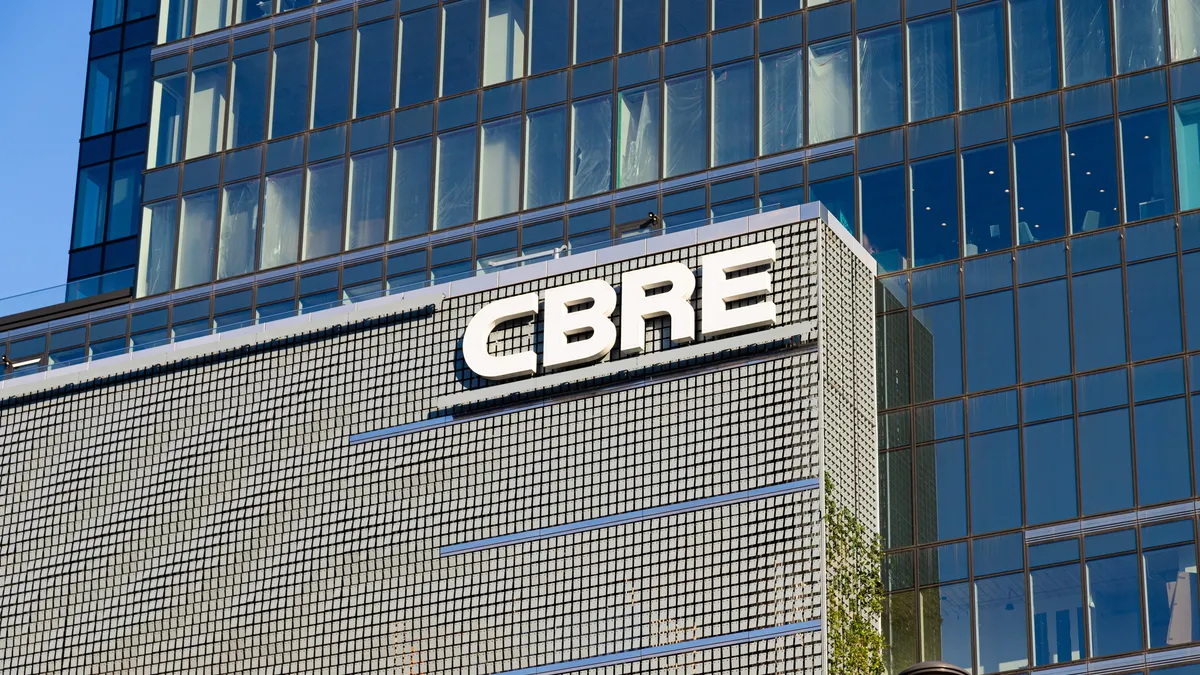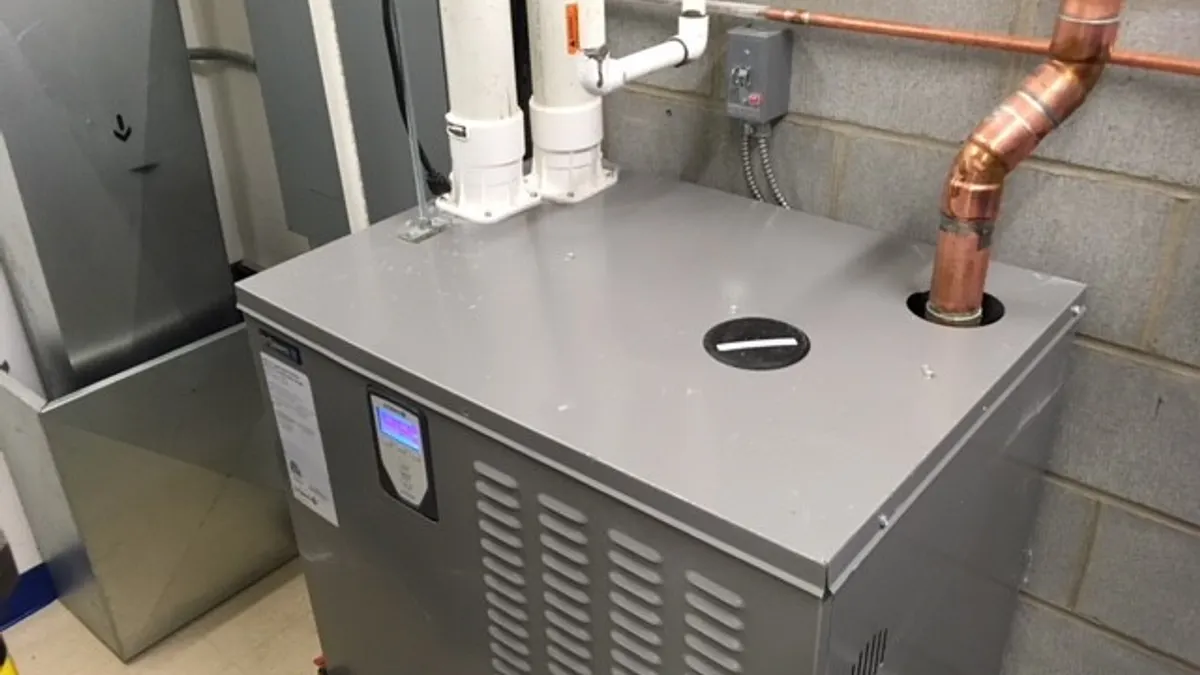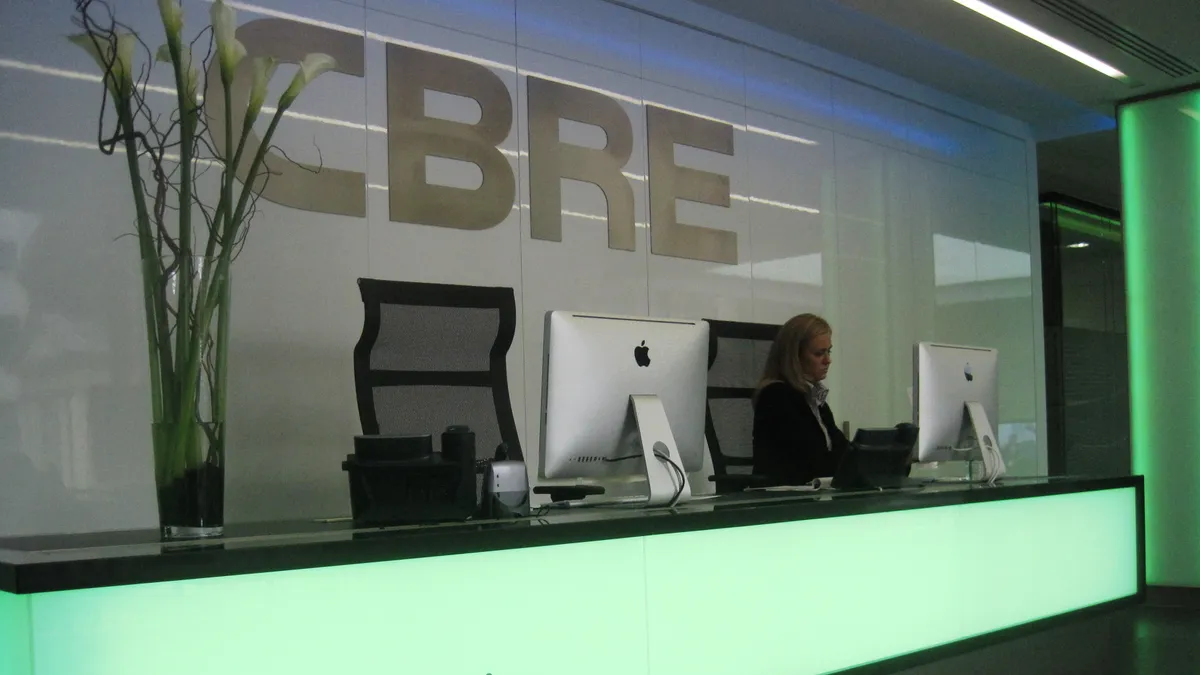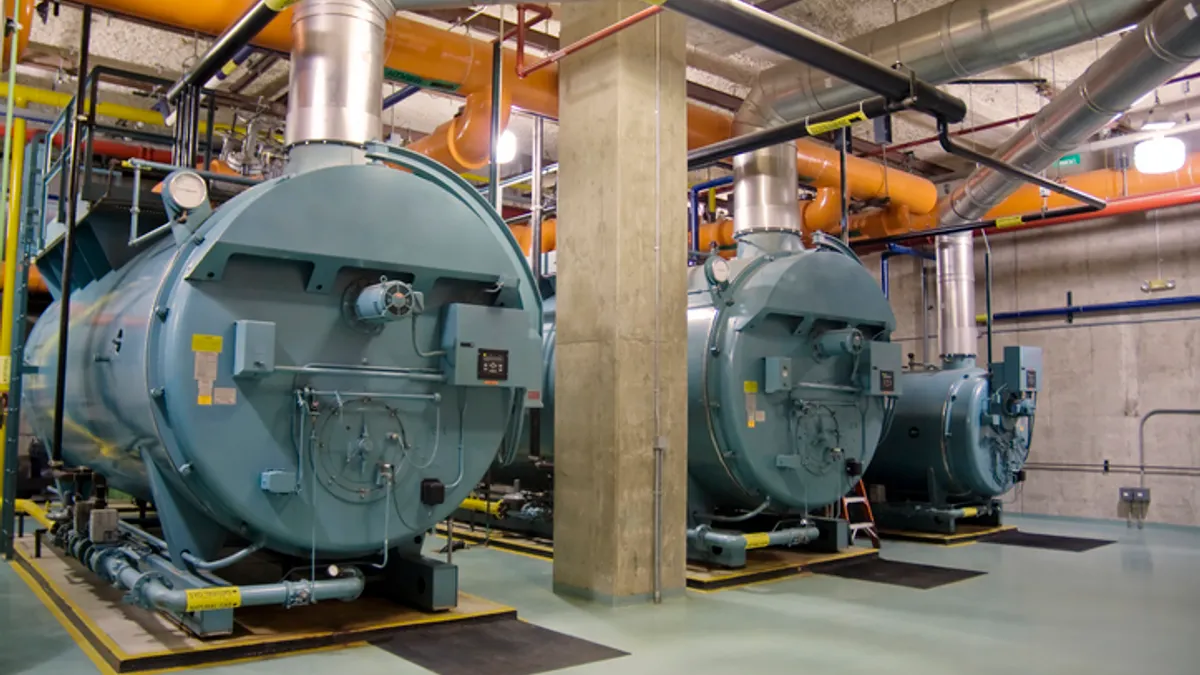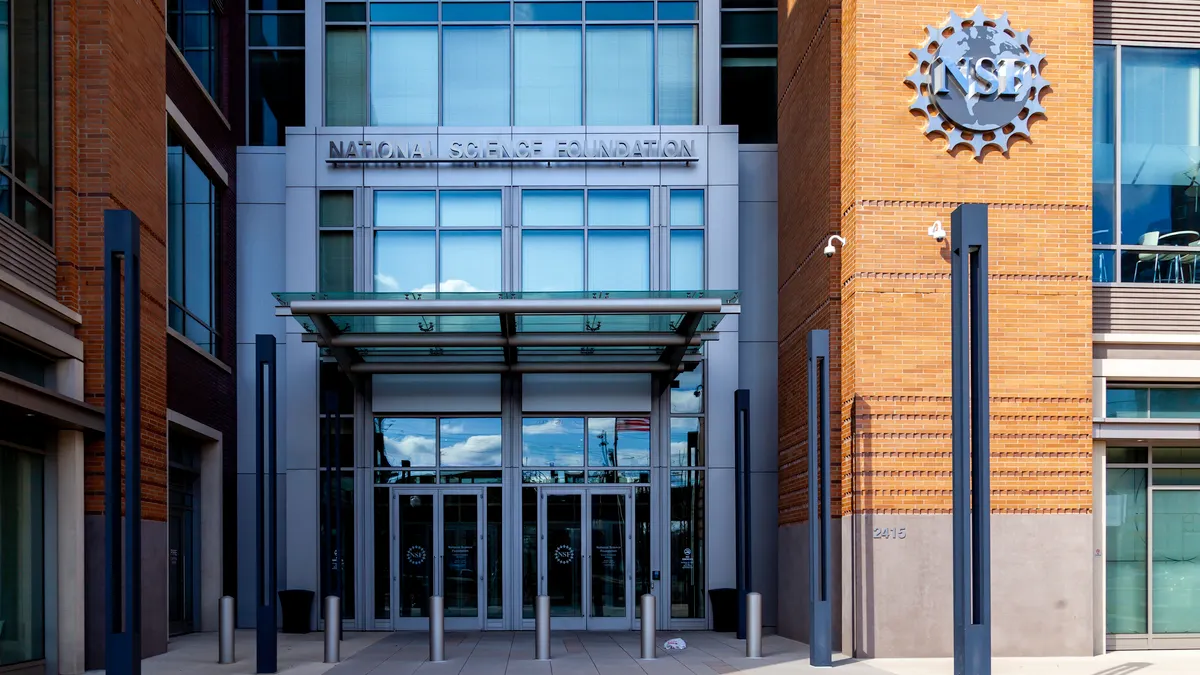CBRE had a strong first quarter, but expressed caution looking forward due to uncertainty caused “by the tariff situation,” the firm said Thursday in its earnings release.
Revenue from resilient businesses — including facilities management, project management, property management, loan servicing, valuation and other portfolio services — grew 14% year over year to $3.7 billion, with transactional businesses up 16% in that time to $1.4 billion, it says. Transactions businesses comprise property sales, leasing, and mortgage origination, in part.
The company’s building operations segment grew 13.9%, driven by its facilities management enterprise business, which saw strong demand from the technology, healthcare and life science sectors and hyperscale data center clients. Property management net revenue increased 36% year over year, which was enhanced by contributions from the firm’s acquisition of Industrious in early January.
“Looking at our Q1 results, we were particularly pleased with the performance of our Project Management and Building Operations & Experience segments in their first quarter of existence. Both segments generated strong financial results and evidenced the type of operational and strategic gains we were hoping for and expected when we reconfigured the business this way,” Bob Sulentic, CBRE’s chair and CEO, said. “The gains included shared client access, insights into opportunities for product development and stronger positioning to pursue certain types of M&A.”
The firm’s reorganization also has enabled CBRE to migrate strong leaders into more compelling positions, Sulentic said. In March, the Dallas-based company filled out its Americas property management division with company veterans who will lead the division as part of the Building Operations & Experience segment, including Kim Berg, Tom Lloyd and Kristi Rankin.
The facilities management local business was boosted by “further inroads in the United States Market,” which continues to drive outsized growth in the U.S., where the firm is actively expanding its market share in a fragmented market, CBRE said in its earnings presentation.
“Notably, as the first quarter ended, most of our businesses were performing better than expected and our new business pipelines were strong. This was equally true for both our resilient and transactional businesses,” Sulentic said on the firm’s Q1 earnings call. “Since then, driven by uncertainty created by the tariff situation, our outlook has become less clear. Even in light of this, our current activity levels and new business pipelines continue to be strong, just somewhat less than they were.”
Looking at uncertainty caused by tariffs, Sulentic underscored that the firm’s pipeline remains strong, and that “things didn’t go from good to bad. Things went from really good to not as good.” He noted that CBRE ended the first quarter with strong pipelines and saw good activity in the latter part of April, but that has “seen some implications of what’s going on with the tariffs.”
There are “some corporates now who are uncertain about what's going to happen with them due to the tariffs, whether we might go into recession, [and] have started to slow down on some of their bigger programs,” Sulentic said. “So we went from a really enthusiastic picture to one where there's some choppiness out there.”
Another area poised for potential weakness is the office segment, Sulentic noted.
“What we have going on with office right now is two dynamics. One is a scarcity circumstance. And it's not just Park Avenue. It's all over the gateway markets and other big cities in second and third tier markets,” he said. “Companies realize that office space is important to them. They realize that there is somewhat of a return to the mean and that they're forcing that in some cases, and it's happening on its own in some cases.”
As a result of lackluster new construction over the last few years and high current demand, “the office space that's out there is in big demand and the choppiness that we're now seeing in people's confidence about the economy is really not impacting their enthusiasm for leasing office space that much at this point,” Sulentic said. “The people are pulling back a little bit, but we're not seeing a lot of change there.”



